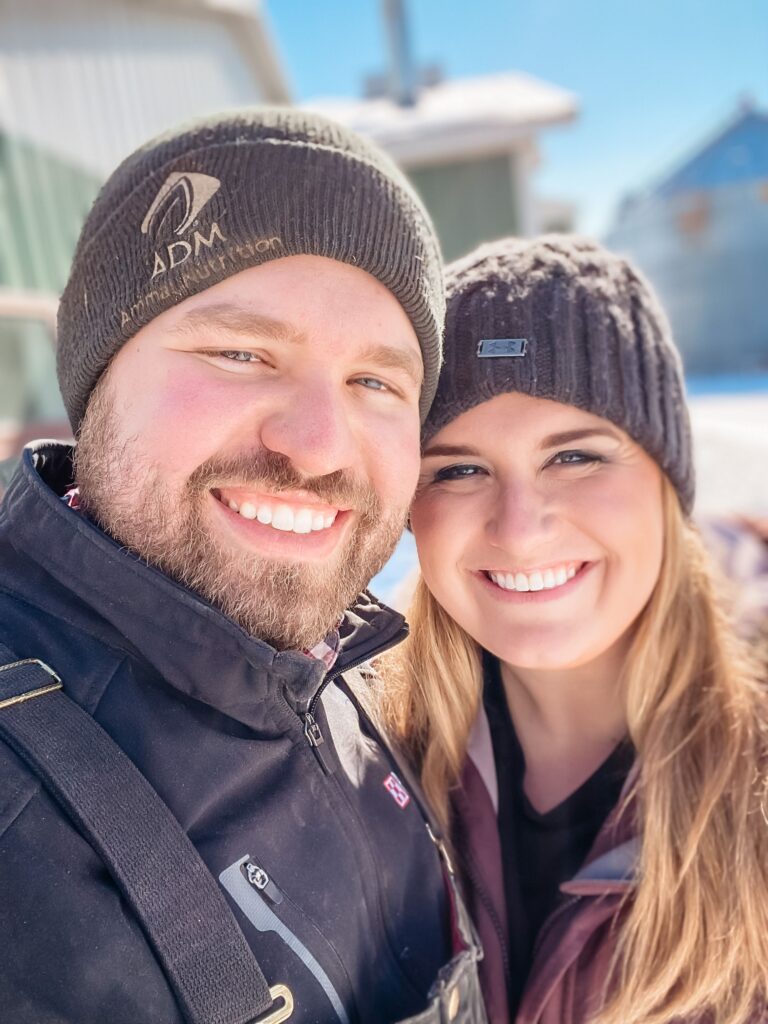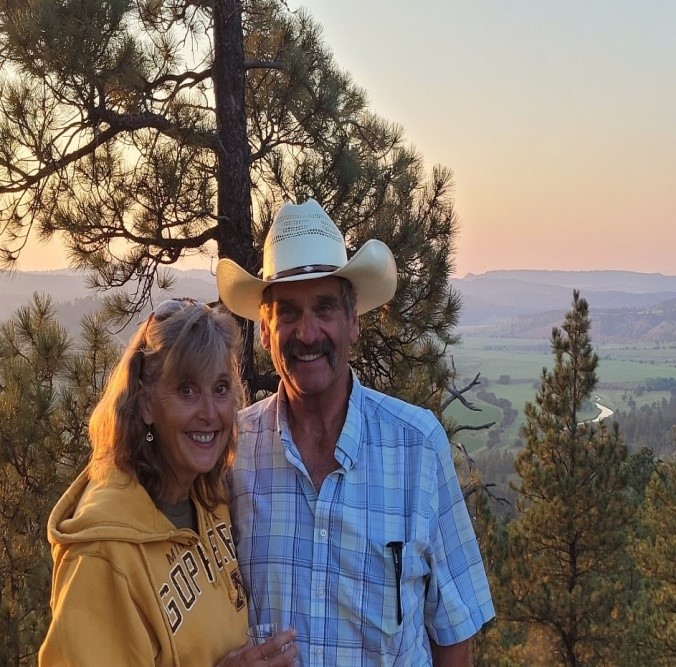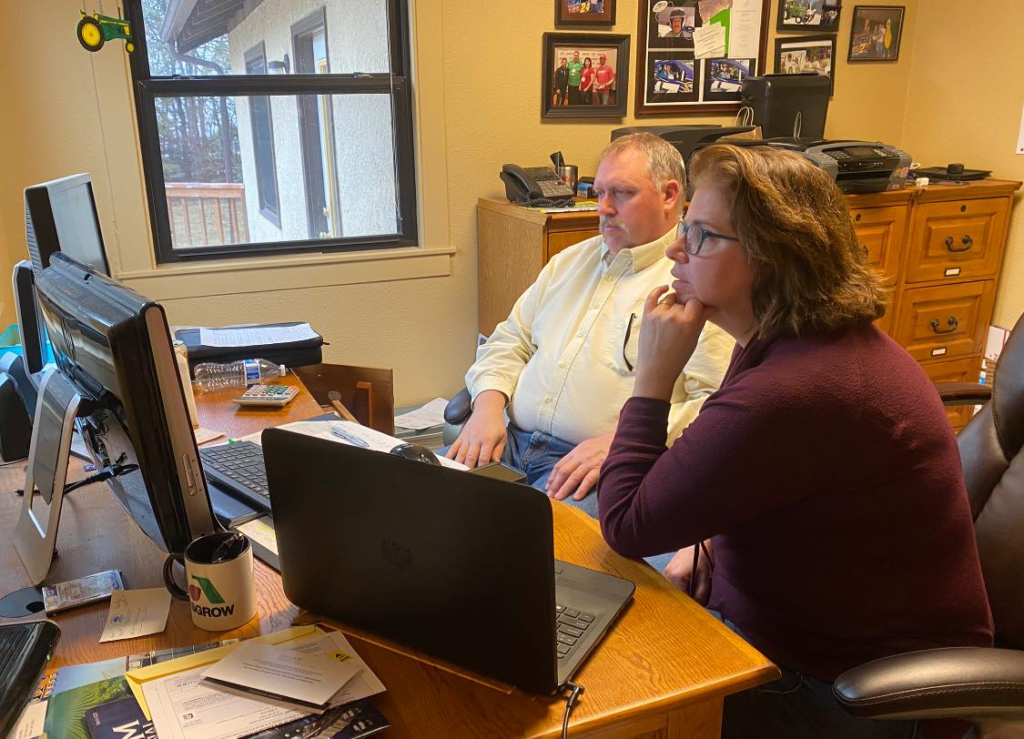Food Safety, Volunteer Insights
Farm to Fork: Q&A with CGMN Volunteers
Many of our CGMN volunteers have kids and grandchildren that they wish to teach about the importance of not only the work that they do, but why they do it for others. We asked a few of our volunteers why it was important for them to teach their families, or future generations, about the farming process and eating farm to fork. Get inspired by their “whys” below.
Amy Amberg
As livestock farmers I feel like the biggest thing we stress to them is that we need to take care of the animals before ourselves. It is our duty to give every animal on our farm the best life we possibly can and care for them no matter how we feel that day or what we would rather be doing. Both of my boys have animal chores they do before school and again in the evening. They might complain sometimes when they are tired or the animals need extra care, but I think they would agree with me that knowing an animal raised on our farm was well cared for is so rewarding. As far as crops, none of our crops go straight to the “table” but the boys know how important they are as inputs to some of the foods we eat and how important it is to take care of the land we grow our crops on.
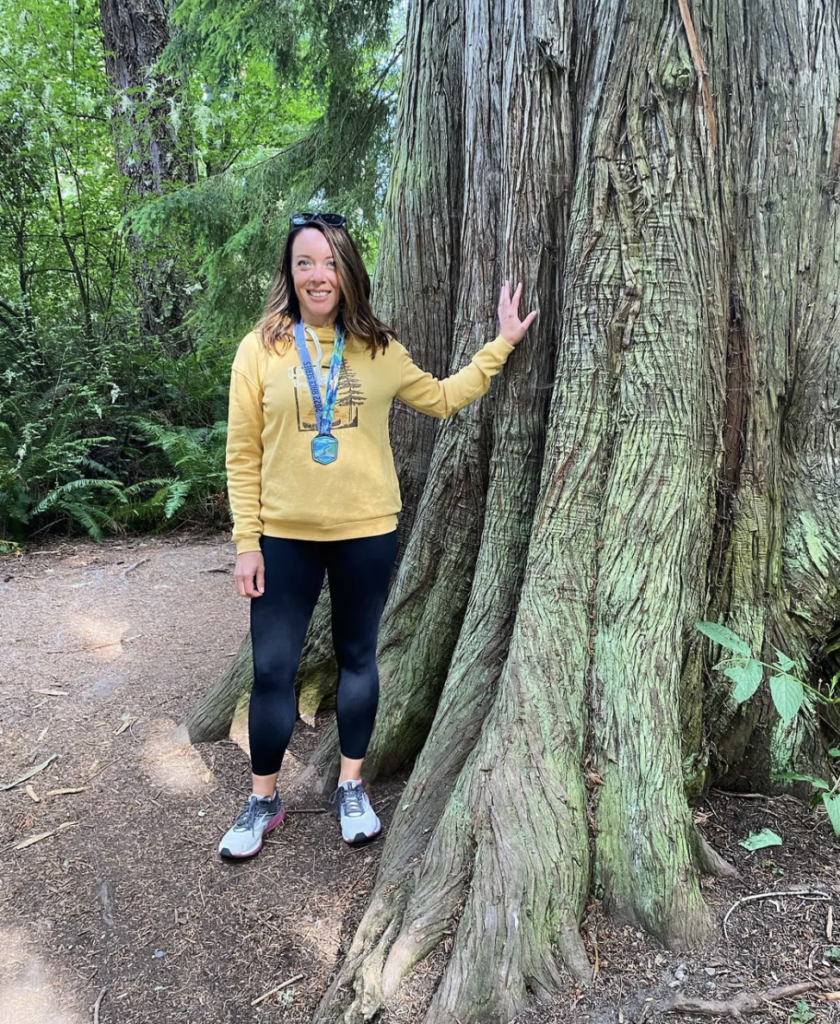
Gail Donkers
We are the first step in the farm-to-table process, the production end. We make an effort to buy locally too, from our equipment to our crop inputs, the dollars spent locally help support the community we live in.

Krista Willis
I know my kids appreciate how much work goes into producing food. But even for them there is a bit of a disconnect as we do not direct market any of the products from our farm. We rely on others in the supply chain to take our raw corn and soybeans to make them into the products we find in our stores.

Lauren Biegler
I appreciate our kids being raised on a farm. They help where they can and care about the farming activities that happen year round. I don’t know what the future holds for them – and our farm – but I am happy they will have this knowledge of agriculture to carry with them throughout their entire life. If they never farm or work in agriculture that is just fine by me, but I am glad that their upbringing will go with – wherever life takes them! I hope they will always use their experience to inform people about agriculture and farming and know where food comes from – and feel great about the people behind the food system in our country. That they know farmers just like us are the ones raising food and they feel confident about the safety of that food.

Melissa Pietig
The most important thing I want to teach my kids is having gratitude. We are so fortunate to live in a time and place where we have so many food choices and a safe food supply at that. I am so thankful that our family gets to be a part of agriculture! I love that we are feeding our community and our world, and we get the chance to raise our kids on the farm. They get to see firsthand how a growing plant pokes its way out of the soil, feeding chickens and collecting eggs, and how little things that we do everyday ensure the well-being of our water, air and soil. It is important to me that my kids know what it means to be thankful for what we have, but also what we have to give by growing food and feeding our world. I also think it’s important to share our farming way of life with others, but my face was sure red when my seven year old shared with some of our friends that she knows how to tell the difference between boy piglets and girl piglets!

Sara Hewitt
We have two children, ages 6 and 2. We really stress the importance to them of feeding others with the work we do. We talk a lot about that our jobs of raising livestock and crops are important because we help provide food for other peoples’ tables. We talk about how the school principal is eating beef our daughter helped raise with her family. That we helped provide a delicious meal for another family by all of the work we put into the end product. Our kids are out with us helping with chores and caring for our livestock, so they know they are part of something bigger than themselves, even at a young age.
I also love involving my children in cooking and baking at home. I think the more we can involve our kids at a young age in the ritual of preparing a meal together and truly enjoying company around a kitchen table or counter is pretty special. Knowing that some of the ingredients are ones we help produce, whether it is the beef, honey or even soy oil being used in the recipe while we spend time together isn’t something we take for granted. We talk about where all the ingredients come from and our kids know that if our farm doesn’t produce something, a fellow farm friend who is a dairy farmer might be producing the cheese or milk we are using or another farm friend we buy wheat from might be part of the bread we make. Preparing meals together really gives our kids a chance to ask questions and learn not only more about how our farm’s products are used, but farms from all over too.

Wanda Patsche
I have 3 grown daughters and 8 grandchildren. My main goal is for my children and grandchildren to know where their food comes from and also want them to know what a privilege it is to have their families connected to the farm. They visit the farm often and all live close. We hope to pass our farm down to the next generation.
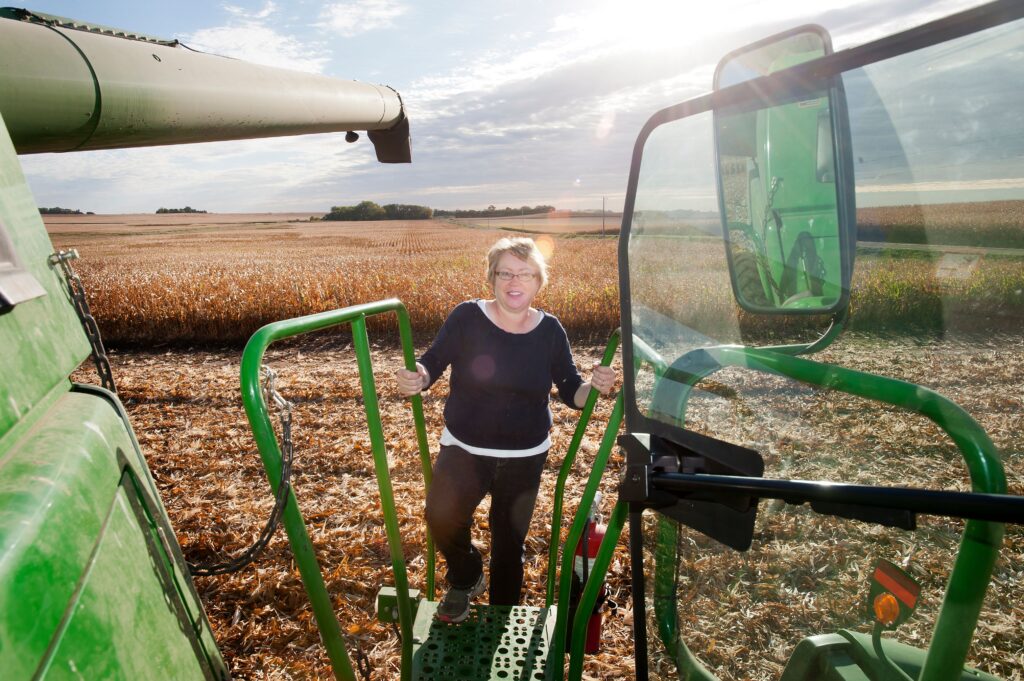
Ellyn Oelfke
We do not have kids right now, but we pray that we’ll be blessed with a family someday soon. However, I think it is incredibly important that we pass on the importance of agriculture in everyday life. With our conventional crops, while we don’t take them directly from the field or barn into our kitchen to prepare for food, we still know that we are producing nutritious and ethically raised commodities. We sell our corn and soybeans to elevators where they are turned into many products – both edible and not. We do keep back some of our beef and pigs to feed our families, but send them to another local, family-owned business for butchering and processing. Jessica and I are working towards growing more homesteading crops like fruits and vegetables, and I think it is crucial that our children know how to raise their own food and be self-sufficient to also help raise that food for others that are unable to.
